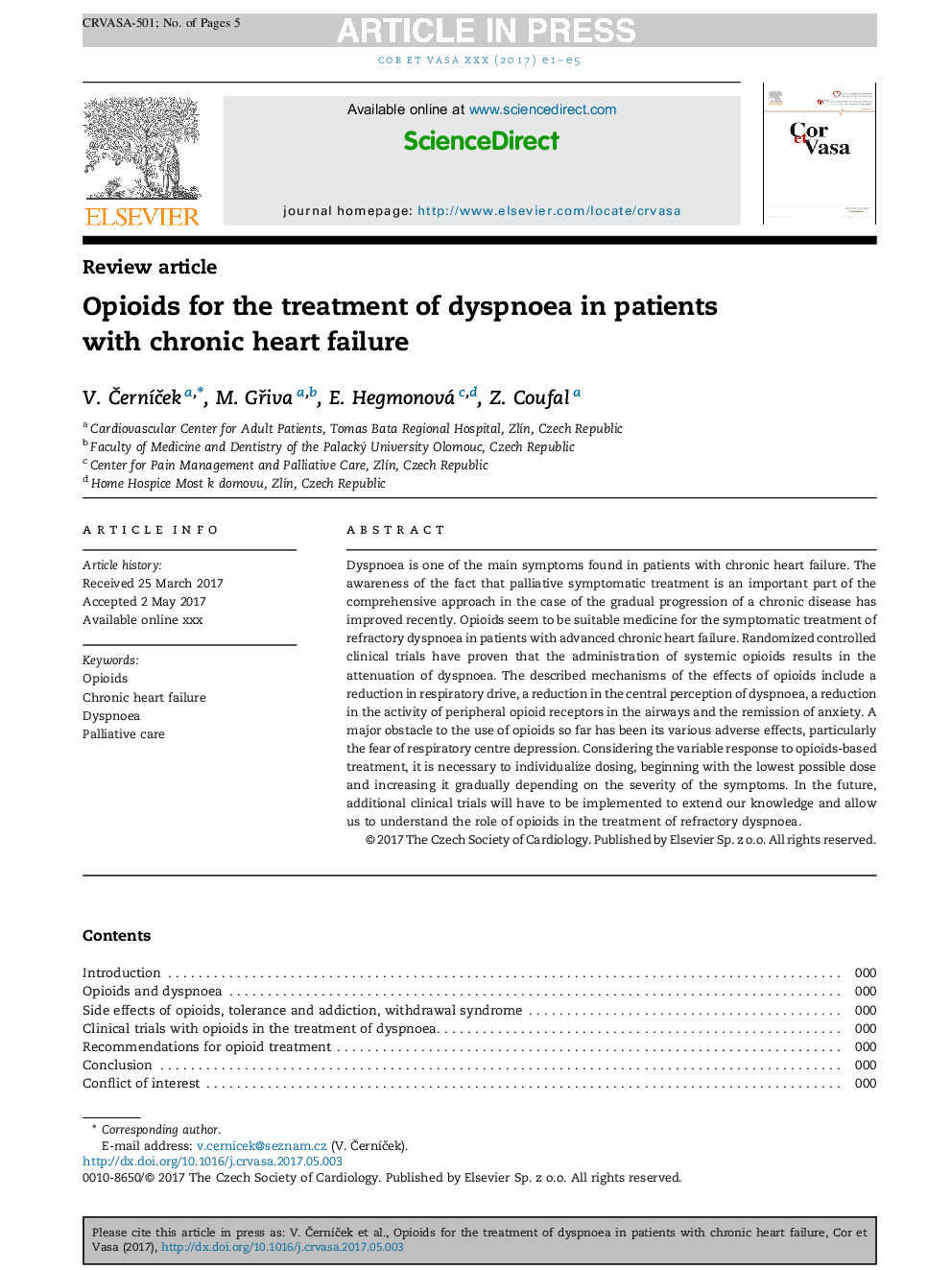| Article ID | Journal | Published Year | Pages | File Type |
|---|---|---|---|---|
| 8604828 | Cor et Vasa | 2018 | 5 Pages |
Abstract
Dyspnoea is one of the main symptoms found in patients with chronic heart failure. The awareness of the fact that palliative symptomatic treatment is an important part of the comprehensive approach in the case of the gradual progression of a chronic disease has improved recently. Opioids seem to be suitable medicine for the symptomatic treatment of refractory dyspnoea in patients with advanced chronic heart failure. Randomized controlled clinical trials have proven that the administration of systemic opioids results in the attenuation of dyspnoea. The described mechanisms of the effects of opioids include a reduction in respiratory drive, a reduction in the central perception of dyspnoea, a reduction in the activity of peripheral opioid receptors in the airways and the remission of anxiety. A major obstacle to the use of opioids so far has been its various adverse effects, particularly the fear of respiratory centre depression. Considering the variable response to opioids-based treatment, it is necessary to individualize dosing, beginning with the lowest possible dose and increasing it gradually depending on the severity of the symptoms. In the future, additional clinical trials will have to be implemented to extend our knowledge and allow us to understand the role of opioids in the treatment of refractory dyspnoea.
Related Topics
Health Sciences
Medicine and Dentistry
Cardiology and Cardiovascular Medicine
Authors
Vlastimil ÄernÃÄek, Martin GÅiva, Eva Hegmonová, ZdenÄk Coufal,
